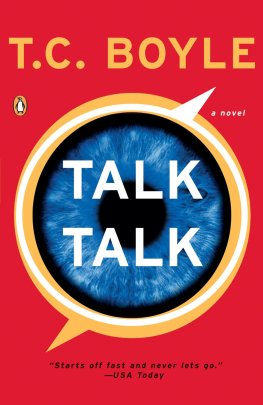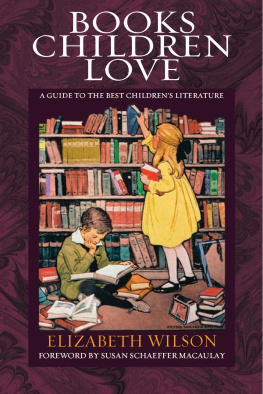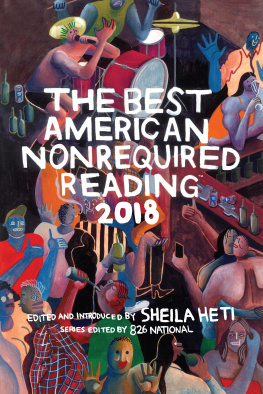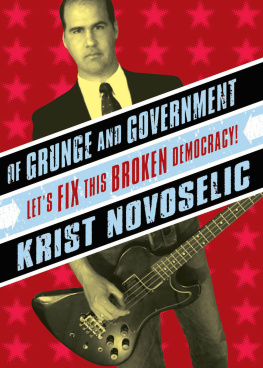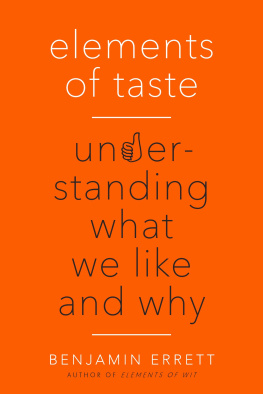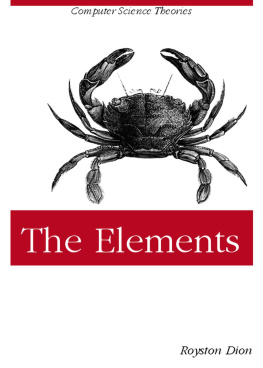
LETS TALK ABOUT LOVE
LETS TALK ABOUT LOVE
Why Other People Have Such Bad Taste
CARL WILSON

CONTENTS
In 2007, Continuum published the 52nd volume in the critically-acclaimed 33 1/3 series. Its title, Lets Talk About Love: A Journey to the End of Taste, seemed to suggest that it would be a book about Cline Dion. But it turned out to be so much more. Lets Talk About Love uses Dion as a test case and thought experiment to prompt the reader to second-guess the way we think about everything we like and dislike, what we value and what we scorn. Soon, the praise poured in and many reviewers immediately identified Lets Talk About Love as their favorite book in the 33 1/3 series, even though it was about what was perhaps their least-favorite album.
The book sparked debates about taste not just in the music-writing community, but in English and Cultural Studies departments on university campuses around the world, on blogs and podcasts, and even on TVs The Colbert Report (where Wilson appeared on March 4, 2009).
Given the great response, Bloomsbury and Wilson decided to create an expanded, standalone edition: What follows in Part One is the original text of Lets Talk About Love from the 33 1/3 series in 2007. (Very tiny mistakes have been corrected for your reading pleasure.) In Part Two is gathered a set of essays on the books themes contributed by a wide range of prominent writers, musicians and scholars. Finally, Carl Wilson returns to his initial questions and updates what has happened in the worlds of both popular taste and Cline Dion since the books publication, in a new Afterword all to deepen and enrich further what it means to talk about love.
Hell is other peoples music, wrote the cult musician Momus in a 2006 column for Wired magazine. He was talking about the intrusive soundtracks that blare in malls and restaurants, but his rewrite of Jean-Paul Sartre conveys a familiar truth: When you hate a song, the reaction tends to come in spasms. Hearing it can be like having a cockroach crawl up your sleeve: you cant flick it away fast enough. But why? And why, in fact, do each of us hate some songs, or the entire output of some musicians, that millions upon millions of other people adore?
In the case of me and Cline Dion, it was Madonnas smirk at the 1998 Oscars that sealed it. That night in March, the galleries of Los Angeless Shrine Auditorium were the colosseum for the latest gladiatorial contest in which arts frail emissaries would get flattened by the thundering chariots of mass culture. And Empress Madonna would laugh.
Until that evening, Id done as well as anyone could to keep from colliding with Titanic, the all-media juggernaut that had been cutting full-steam through theaters, celebrity rags and radio playlists since Christmas. I hadnt seen the movie and didnt own a TV, but the magazines and websites I read reinforced my sureness that the blockbuster was a pandering fabrication, an action chick-flick, perfectly focus-grouped to be foisted on the dating public.
Now, I realize this attitude, and several to follow, probably makes me sound like a total asshole if, like millions of people, you happen to be a fan of Titanic or of the woman who sang its theme. You may be right. Much of this book is about reasonable people carting around cultural assumptions that make them assholes to millions of strangers. But bear with me. At the time, I thought I had plenty of backup.
For instance, Suck.com, that late 90s fount of whip-smart online snark, called Titanic a 14-hour-long piece of cinematic vaudeville that had the most important thing a movie can have: a clear plot that teaches us important new stuff like if youre incredibly good-looking youll fall in love. It was contrasted with Harmony Korines Gummo, a film about malformed but somehow radiant teenagers drifting around rural, tornado-devastated Xenia, Ohio as if, after the twister, Dorothys Kansas had been transformed into its own eschatological Oz. Suck said that Gummo evoked the vertigo we encounter when people discover and make up new standards of cool and beauty, a sensation resisted by mass society because those standards could be the wrong ones, and we cant allow ourselves to look at that too hard or long.
CNN.coms review, on the other hand, described Gummo as the cinematic equivalent of Korine making fart noises, folding his eyelids inside-out, and eating boogers, and the director as a punk-ass straining in vain to be a punk. For cred, the writer namechecked the Sex Pistols, saying that unlike theirs, Korines rebellion came down to making fun of the hicks.
I knew which argument I bought, and it wasnt just because the same CNN reviewer called Titanic one swell ride. After all, Korine was a lyrical enfant terrible whod gotten fan letters from Werner Herzog; Titanic director James Cameron made Arnold Schwarzenegger flicks. Korine was New York and Cameron was Hollywood. And just consider their soundtracks: Gummo had a soundscape of doom-metal bands, with an alleviating dash of gospel and Bach. Titanic had Celtic pennywhistles, saccharine strings and Cline Dion.
Living in Montreal, Quebec, made it impossible to elude Titanics musical attack as neatly as the celluloid one. Dion had been intimate with the whole province for years, as first a child star, then a diva of all French-speaking nations and finally an EnglishFrench crossover smash. Her rendition of James Horner and Will Jenningss My Heart Will Go On had come out first on her bestselling 1997 album Lets Talk About Love, then on the bestselling movie soundtrack and then again on a bestselling single. (Ten years later, by some measures, its the fourteenth-most-successful pop song the world has ever seen.) I hadnt listened regularly to pop radio since I was eleven, and I got agoraphobic in malls, but that tin-flute intro would tootle at me from wall speakers in cafs, falafel joints and corner stores, and in taxis when I could afford them. Dodging My Heart Will Go On in 199798 would have required a Unabomber-like retreat from audible civilization.
Whats more, I was a music critic. I hadnt been one long: Id done arts writing at a student paper, veered into leftish political journalism and then become the arts editor at one of Montreals downtown alternative weeklies. I wrote profiles and CD reviews on the side for the rakish punk-rock guitarist who edited the music section (when he dragged himself into the office in the mid-afternoon). I championed experimentalists and the kinds of unpopular-song writers I was prone to calling literate. I would not have deigned to listen to an entire Cline Dion album, but it was a basic cultural competency in Montreal to know her hits well enough to mock them with precision. In Quebec, Dion was a cultural fact you could bear with grudging amusement a horror show, but our horror show until Titanic overturned all proportion and Dions ululating tonsils dilated to swallow the world.
* * *
With My Heart Will Go On, Cline-bashing became not just a Canadian hobby but a nearly universal pastime. Then-Village Voice music editor Robert Christgau described her popularity as a trial to be endured. Rob Sheffield of
Next page

